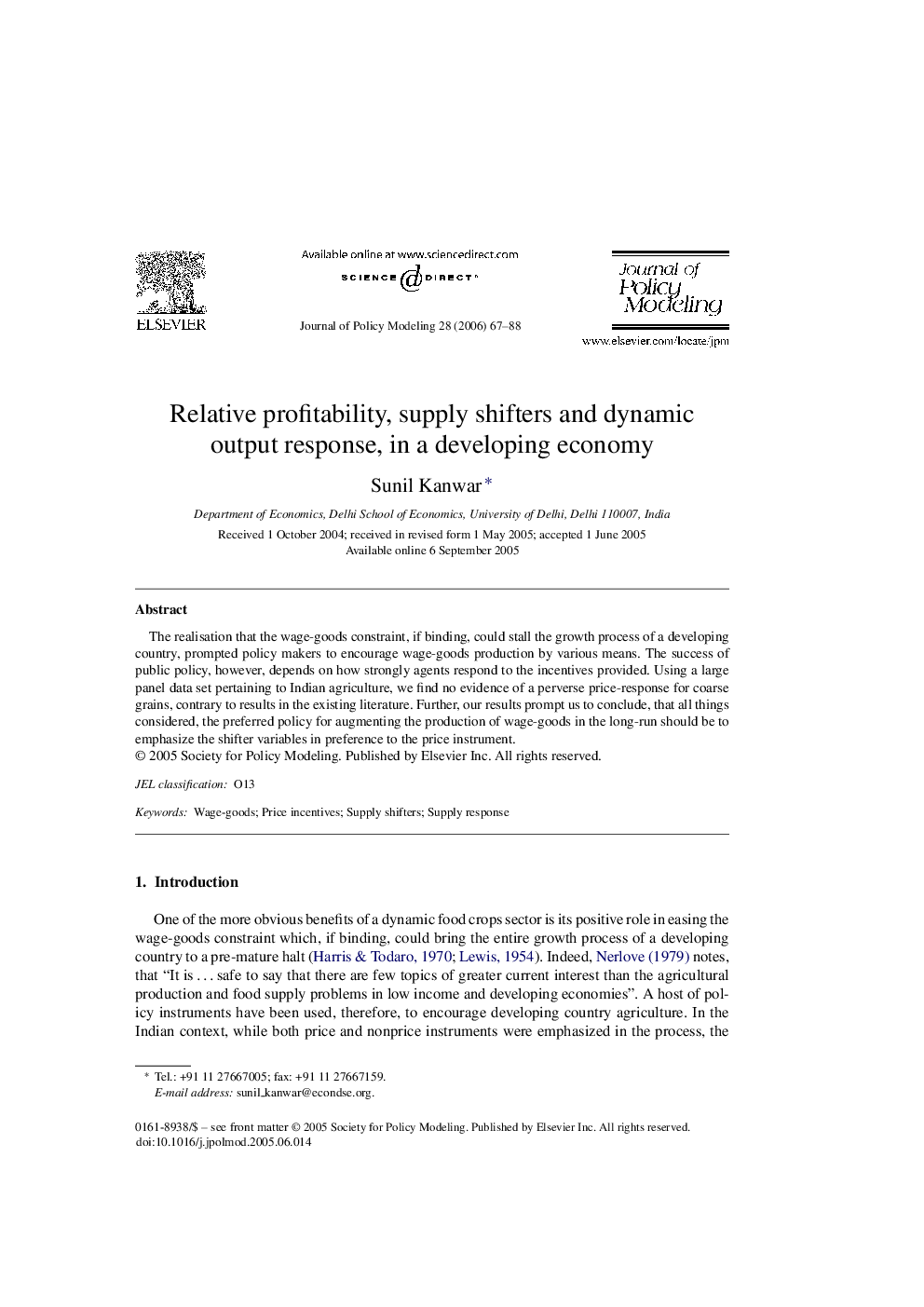| Article ID | Journal | Published Year | Pages | File Type |
|---|---|---|---|---|
| 968444 | Journal of Policy Modeling | 2006 | 22 Pages |
Abstract
The realisation that the wage-goods constraint, if binding, could stall the growth process of a developing country, prompted policy makers to encourage wage-goods production by various means. The success of public policy, however, depends on how strongly agents respond to the incentives provided. Using a large panel data set pertaining to Indian agriculture, we find no evidence of a perverse price-response for coarse grains, contrary to results in the existing literature. Further, our results prompt us to conclude, that all things considered, the preferred policy for augmenting the production of wage-goods in the long-run should be to emphasize the shifter variables in preference to the price instrument.
Keywords
Related Topics
Social Sciences and Humanities
Economics, Econometrics and Finance
Economics and Econometrics
Authors
Sunil Kanwar,
